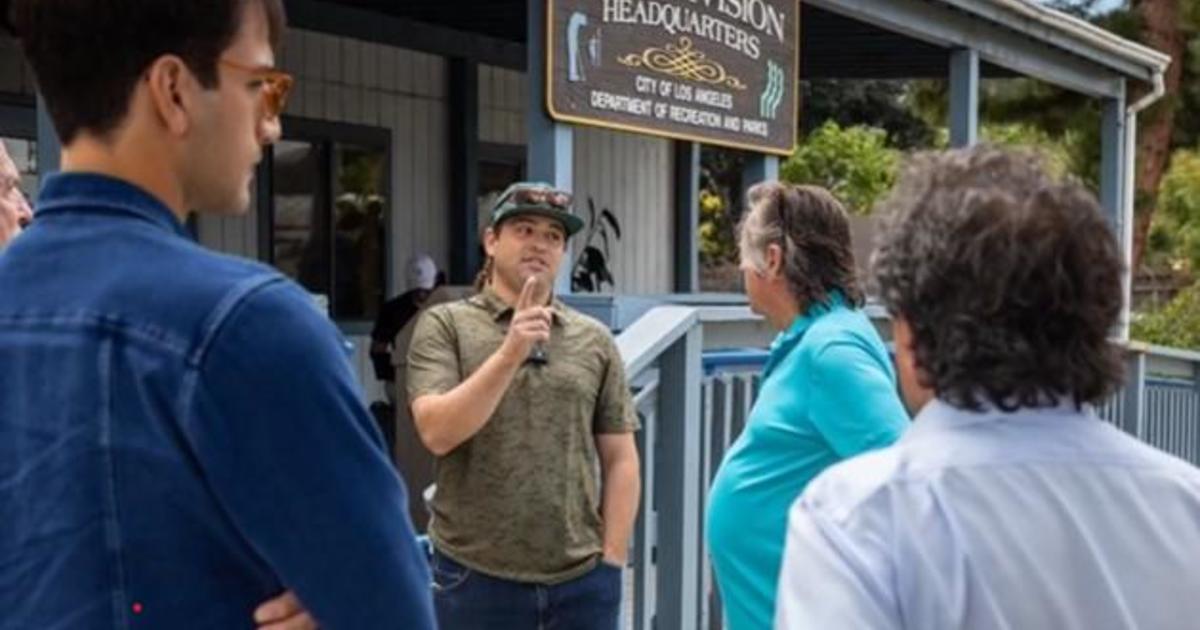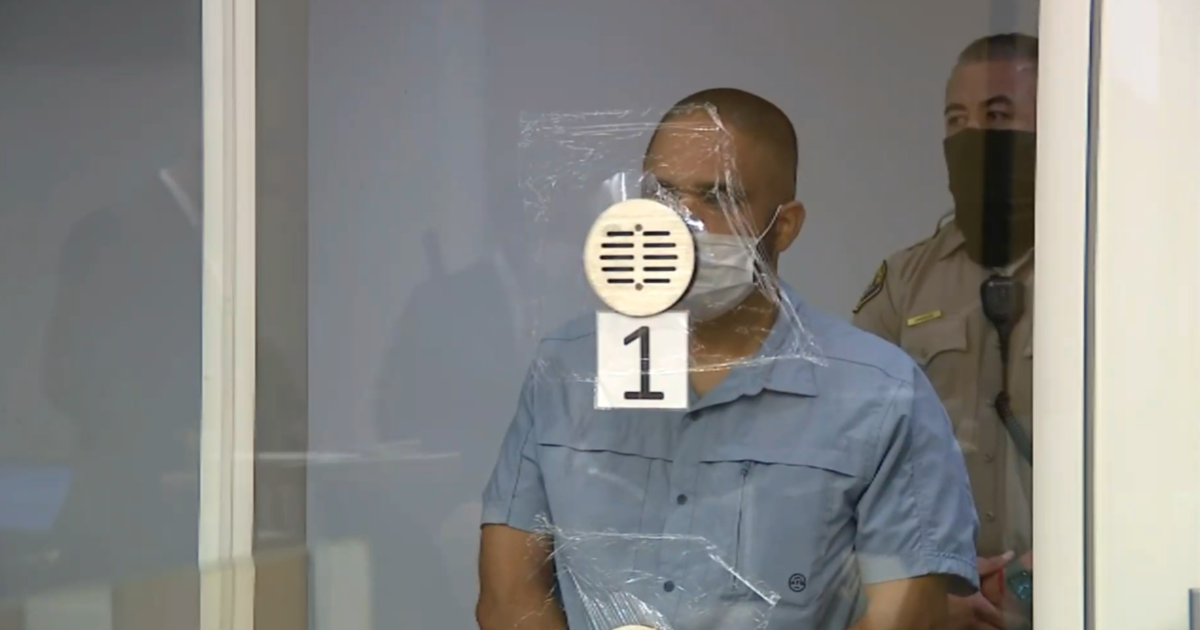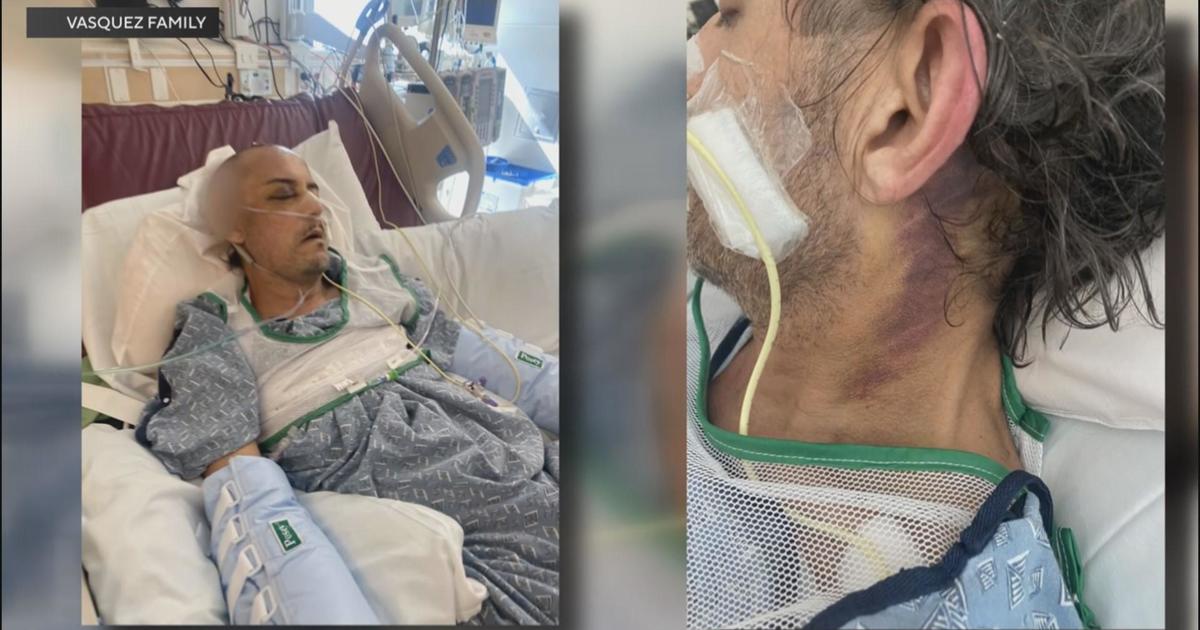Smith Verdicts Will Resonate For Doctors, Patients
LOS ANGELES (AP) — During the past few weeks, a beautiful blonde celebrity has been making cameo appearances in a downtown courtroom.
Her image appears on a huge video screen above the heads of three of her friends whose futures are now at stake because of their relationships with her.
The woman is Anna Nicole Smith, a one-time Playboy model who died in 2007 of a drug overdose. Those on trial are her former lawyer-boyfriend and two doctors, all charged with conspiring to give her excessive prescription drugs while knowing she was an addict.
The trial's approaching outcome is sure to reverberate among doctors and pain management patients whose need for drugs is at the heart of California laws under which the defendants are charged.
Underlying the legal issues is the puzzle of Anna, the busty bombshell who sometimes slurred her words and appeared drugged. Who was she in life? Even her name was a mystery. Was she Vickie Marshall, Anna Nicole Smith, Michelle Chase, Susie Wong, Jane Brown or a number of other pseudonyms used to fill prescriptions?
Was Smith a drug addict or a woman beset by so much pain from various ailments that she sought relief in medicine bottles?
Was she a pliant victim drugged into semiconsciousness by others or a strong-willed woman who told people what to do?
The jury of six women and six men will ponder those questions when the case is submitted to them, possibly next week.
Superior Court Judge Robert Perry has harshly criticized the prosecution for "overreaching" and indicated he will bar some charges from going to the jury.
"I'm very concerned about the way this case is charged and being prosecuted," he told Deputy District Attorney Renee Rose. "If you're going to accuse someone, you should have some evidence."
On another occasion, he declared, "I would hope that a prosecutor would be intent on finding the truth, not just a conviction."
Now, Perry has presented both sides with a 15-page document he labeled "Thoughts," asking 50 different questions about the charges.
His first question was: "What evidence shows that Anna Nicole Smith took drugs to get high or obtain a euphoric state and not to relieve pain?"
The one defense witness, pain management expert Dr. Perry G. Fine, clearly impressed the judge. Fine testified that even if Smith was prescribed 1,500 pills in one month for pain, it did not mean she was an addict -- that clinical factors had to be considered as well as her high tolerance for opiates and sedatives.
Perry sees this as central to the case and advised jurors: "The number of pills is not a determinative factor in this case. Please keep that in mind."
He spoke after Rose spent two hours having an investigator enumerate thousands of pills found in Smith's homes after she died. Much of the prosecution's case has been a laundry list of powerful medications, including Methadone, Dilaudid, Demarol, Valium, Xanax and Chloral Hydrate. Pharmacists testified about being shocked at the number of medications prescribed and one said he refused to fill a request that he felt was "pharmaceutical suicide."
Witnesses testified that Smith suffered from chronic pain syndrome, seizures, fractured ribs, migraine headaches, insomnia and severe back pain, as well as depression after the death of her son, Daniel.
Perry, who said he has researched the legislative intent behind the relevant laws, said he may tell jurors that to convict the defendants of prescribing to an addict they must find the prescriptions were for "non-therapeutic purposes," meaning to feed an addiction rather than treat an illness.
Loyola Law School Professor Laurie Levenson said it's unusual for a judge to do so much research on his own.
"But I can see why he is concerned," she said. "Even the (California) legislature has expressed concern that these statutes might be used in a way that would chill doctors from treating pain-management patients' needs."
Defendants Howard K. Stern, Dr. Sandeep Kapoor and Dr. Khristine Eroshevich have pleaded not guilty to an array of charges, including conspiracy to provide excessive controlled substances, prescribing to an addict, and obtaining drugs by fraud -- some prescribed under false names. The three are not charged with causing Smith's death.
Their defense team -- veteran lawyers Steve Sadow, Ellyn Garafalo and Brad Brunon -- recently made a surprise announcement that they will call no further witnesses after the prosecution rests. They say the case against their clients has not been proven.
The three attorneys intensely cross-examined every prosecution witness and the judge said they succeeded in destroying the credibility of several, including two nannies flown in from the Bahamas. Sadow accused one of them of outright perjury.
The prosecution summoned up Smith's video images to suggest she was addicted -- showing her at the American Music Awards slurring her words.
The defense answered with its own videos of Smith speaking clearly and still photos showing her smiling and engaged.
Prosecutors used photos of Smith naked in a tub with Eroshevich and pictures of Kapoor kissing Smith after riding with her in a gay parade to show that the doctors blurred the line of their professional relationship with Smith.
Perry scheduled arguments Monday on dismissal motions, but indicated some charges "will likely survive in some form."
He wants arguments to be limited to two issues: whether Smith was an addict and whether prescriptions were obtained under false names.
If false-name charges stand, he asked whether nine prosecution witnesses should be considered accomplices and jurors should be warned to treat their testimony with caution. These included pharmacists and doctors who prescribed to Smith under pseudonyms, a common practice with celebrities.
David Kettel, a former federal prosecutor of drug cases, said this case was overcharged and Perry will probably pare it down to the bare minimum he feels can be supported by law, should the jury return convictions.
"I wouldn't be surprised if it came down to as little as three charges," Kettel said.
Levenson said convictions could send a message that would inhibit doctors from prescribing pain medications and treating celebrities.
"They will feel that big brother is looking over their shoulder," she said. "And even though we do want monitoring to keep the public safe, what we don't want is witch hunts."
(© Copyright 2010 The Associated Press. All Rights Reserved. This material may not be published, broadcast, rewritten or redistributed.)



